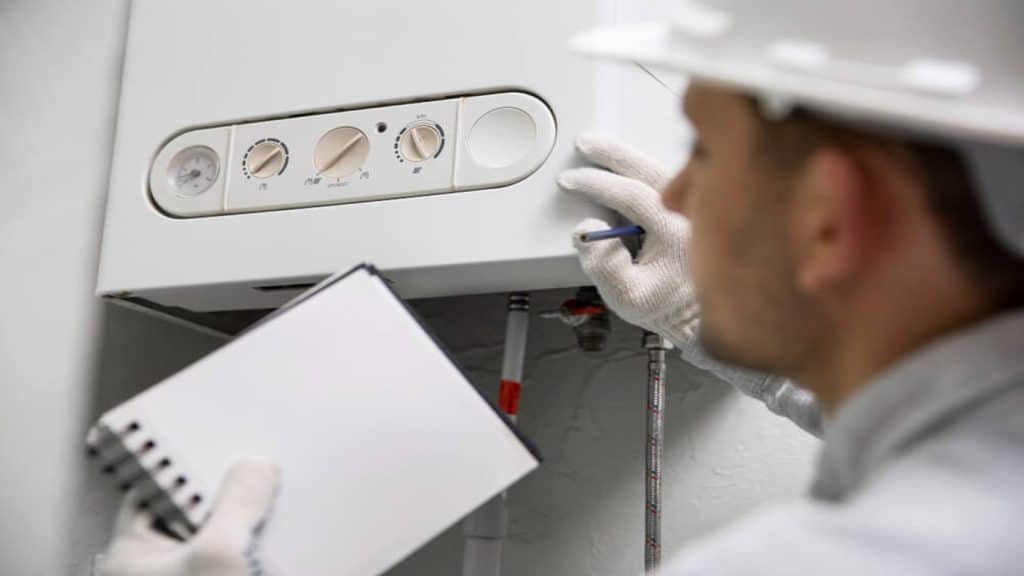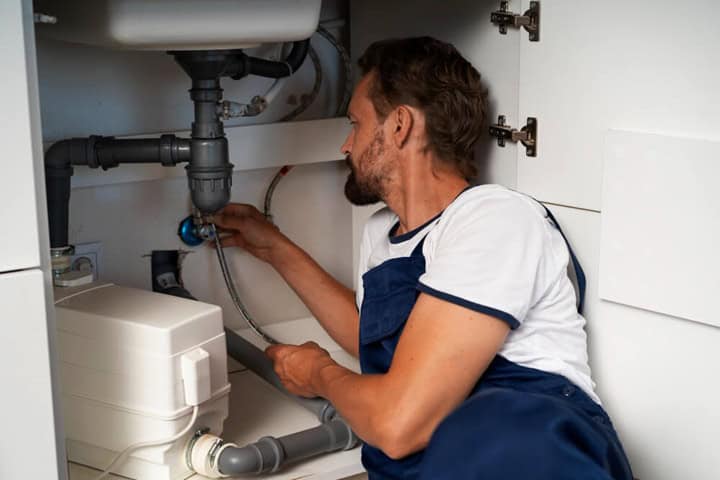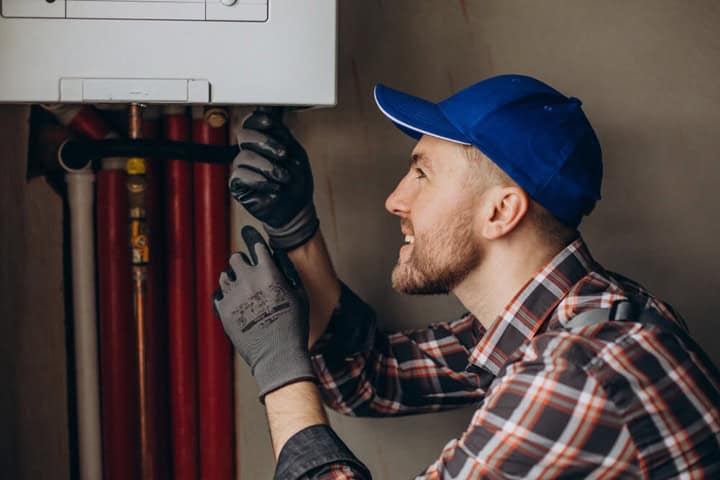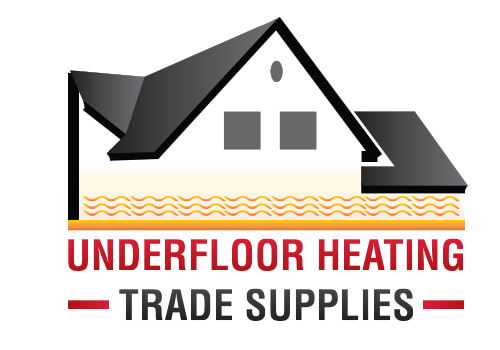
Thinking about upgrading your home’s heating system? A new boiler might be the key to boosting your property value while cutting energy costs.
Will installing a new boiler increase the value of your house? From energy efficiency to lower utility bills, replacing an outdated boiler offers a range of benefits that could appeal to potential buyers. We will cover the most profitable home improvements, the impact on energy-saving measures, and how a new boiler ties into the overall value of your home.
Key Points:
- A new boiler can increase property value by improving energy efficiency.
- Upgraded heating systems often result in lower energy bills.
- Homebuyers value energy-saving features when making purchasing decisions.
- Repairing or replacing an old boiler is one of the more profitable home improvements.
- A new boiler can enhance overall home comfort and sustainability.
Replace or Repair?
When deciding whether to replace or repair your boiler, a few factors need to be considered, especially if you’re wondering, “Does a new boiler increase house value?”
If you’ve recently moved into a property, are renovating, or haven’t updated your home in a few years, you might be faced with the decision of whether to replace your boiler. This decision isn’t always straightforward, but the right choice can add significant value to your property.
- Is it efficient?
If your boiler is over 10 or 15 years old, it might not be performing efficiently. While some older models can still work well with regular servicing, outdated boilers often struggle to meet modern efficiency standards. If your energy bills are consistently high, it could be a sign that your boiler is no longer efficient. Newer boilers operate at over 90% efficiency, which means upgrading can lead to significant energy savings over time. If your boiler pressure is too high, it could affect performance and efficiency. Find how to resolve it in our guide Why Is My Boiler Pressure Too High? to ensure your system is working optimally.
- Is it still under warranty?
A boiler that’s still under warranty and functioning without issues doesn’t necessarily need to be replaced. However, if your warranty has expired, or you’re looking to upgrade to a more efficient model, it may be worth considering a new installation. Having a boiler under warranty gives peace of mind, knowing that repairs or replacements won’t come with an extra cost.
- Is it constantly breaking down?
Frequent boiler breakdowns not only disrupt your daily routine but can also be costly in terms of repairs. If you find yourself frequently calling an engineer, it might be more economical to invest in a new boiler. Older boilers also make it harder to find replacement parts, meaning repairs can become increasingly expensive. A new boiler typically comes with a long warranty and fewer chances of breakdown, ensuring you won’t lose hot water or heating when you need it the most.

How Does a New Boiler Add Value to a House?
While it might feel counterintuitive to invest in a new boiler that you won’t personally benefit from, research shows that upgrading your boiler can add value to your property. In fact, studies have found that installing a new boiler could increase the value of your home by £8,000 or more. Given that the average cost to install a new boiler is around £4,000, this results in a potential profit of around £2,000 when selling your home.
If you want to know Does Underfloor Heating Have Value then read this article to learn the benefits.
- For prospective buyers, a new boiler is an attractive feature for several reasons. It signals to buyers that they won’t have to worry about costly heating repairs or replacements in the near future, making your home a more appealing option compared to others with outdated systems.
- One of the most compelling reasons for upgrading your boiler is the reduction in energy bills. Homebuyers are more inclined to purchase a property with a boiler that will keep their heating bills as low as possible. With gas and oil prices continually rising, this is a key selling point.
According to the Energy Saving Trust, replacing an old, G-rated boiler with a new A-rated model could save homeowners up to £840 per year on their energy bills, depending on the size of the property. This not only makes your home more attractive but adds long-term financial benefits for the new owner.
- A new boiler doesn’t just save on energy bills; it also enhances the overall energy efficiency of the property. Energy-efficient homes are in demand, as buyers are becoming more conscious of their environmental impact.
- One of the key advantages of installing a new boiler is the peace of mind it offers to potential buyers. Modern boilers from reputable manufacturers often come with warranties of 5, 7, or even 10 years. This means the new homeowner won’t have to worry about unexpected repair bills during that period.
- Today’s modern boilers offer more than just efficient heating; they also come with luxury features that increase convenience for the homeowner. Many boilers are now compatible with smart thermostats and other smart devices, allowing remote control via smartphone apps. This added convenience is highly appealing to buyers looking for a home that integrates modern technology.
For example, the homeowner can monitor and control their heating system from anywhere. Whether they want to turn on the heat while commuting home or delay the timer if they’re working late, these features allow the owner to maximise both comfort and energy savings. Smart thermostats also provide real-time data on energy consumption, helping homeowners to cut costs. Additionally, by installing smart Thermostatic Radiator Valves (TRVs), the temperature in each room can be adjusted independently, offering greater control and comfort.
Read more about the benefits of efficient Central Heating Systems and make a smart investment!

More Ways to Add Value to a House
While upgrading to a new boiler can significantly add value to a house, there are several other home improvements and renovations that can increase property value and attract buyers.
Improve Energy Saving Measures
Improving the home’s overall energy efficiency is another way to increase property value. Upgrading insulation or replacing old windows with energy-efficient double or triple glazing can reduce energy costs, making the home more appealing.
Increase Home Security
Improving home security is another way to make a property more attractive to buyers. Adding security systems, cameras, or even upgraded locks on doors and windows can increase a buyer’s confidence in the safety of the home. A well-secured property can also justify a higher asking price.
Fix Structural Issues
Structural issues can deter buyers and lower the value of your home. Problems like rising damp, subsidence, or a leaking roof can be major turn-offs. Hiring a surveyor or technical expert to identify and fix these problems can make a significant difference when selling your home.
Improve Your Driveway
Curb appeal is a crucial aspect of selling a house. According to the Federation of Master Builders and the HomeOwners Alliance, upgrading your driveway can cost as little as £2,500 but may add over £13,000 to the value of your home. A well-maintained driveway gives a great first impression and helps overall curb appeal.
Build an Extension
Building an extension increases the property’s square footage. This can be a more expensive project that may require planning permission, particularly for two-storey builds, but it often pays off in terms of added value.
Convert Your Loft
A loft conversion is another great way to add more space and increase the value of your home. It often doesn’t require planning permission and can add an extra bedroom or living area.
Add a New Bathroom
Adding an extra bathroom, ensuite, or shower room can boost a home’s appeal. Although some buyers may prefer to renovate this space themselves after moving in.
Upgrade Your Kitchen
A modern, open-plan kitchen is a popular attraction for many buyers. However, the return on investment isn’t always as high as you might think. A typical kitchen upgrade can cost around £5,000 or more, but since most buyers like to personalise this space, it may not be the most profitable choice.
Create More Space in Your Home
Wondering, “Does a new boiler add value to a house?” One of the hidden benefits of installing a new boiler is the extra space it can create, particularly if you switch to a combi boiler. While this won’t apply in every situation, switching from a traditional system or regular boiler to a combi boiler can free up valuable square footage in your home.
Top 5 Most Profitable Home Improvements
To understand which projects are worth the investment, consider the table below that highlights the top five home improvements based on average cost, added value, and profit:
| Improvement | Average Cost | Added Value | Profit |
| New Boiler | £2500 | £8500 | £6000 |
| Off-Street Parking | £2200 | £6500 | £4300 |
| Central Heating | £4500 | £8500 | £4000 |
| Energy Saving | £600 | £4500 | £3900 |
| Security System | £650 | £4300 | £3650 |
Top 5 Least Profitable Home Improvements
Not every improvement will increase your property’s value. Here are some of the least profitable upgrades, which tend to have high costs but minimal returns:
| Improvement | Average Cost | Added Value | Profit |
| Wine Cellar | £47,000 | Minimal | -£47,000 |
| Swimming Pool | £36000 | £2500 | -£33000 |
| Tennis Court | £37000 | £6500 | £30500 |
| Home Cinema | £28000 | £2500 | -£25500 |
| Extension | £50000 | £32000 | -£18000 |
Improve the Heating System
One of the most valuable upgrades you can make is improving your heating system. Many buyers are put off by properties with old or inefficient boilers because they know that replacing them can be costly. By installing a new boiler, you can answer the question, “Does a new boiler increase house value?” with a definitive “Yes!” A new boiler could increase your property’s value by around 1.9%, which translates to approximately £5,700 on a £300,000 house.
It’s also important to remember that a new boiler isn’t just about increasing the value of your house—it’s also about enhancing the comfort and efficiency of the home while you live there. A modern boiler will lower your energy bills, giving you savings even before you decide to sell. If you’re not sure which boiler type is right for your home, check out our Boiler Types Explained guide to make the best choice for energy efficiency and increased home value.
How to Hide the Boiler
If you’re concerned that a visible boiler might put off buyers, consider concealing it within a kitchen cupboard or painting it to blend with the surrounding walls. While this won’t directly increase the value of your home, it can make your property more desirable, which could lead to a faster sale.
Making small but strategic changes like upgrading your heating system can help you create a home that’s more energy-efficient, appealing, and valuable to future buyers.
In conclusion, installing a new boiler can significantly increase your home’s value by improving energy efficiency, reducing utility bills, and enhancing overall buyer appeal. While there are other valuable home improvements, upgrading your boiler is a cost-effective way to add value without extensive renovations. Not only will a new boiler offer peace of mind for future homeowners, but it also provides comfort and savings for you in the meantime, making it a wise investment when selling your property.
FAQs
How much value does a new boiler add to a house?
The added value from installing a new boiler depends on several factors, including your home’s location and market conditions. While difficult to pinpoint exactly, a new boiler can make your property more appealing to buyers, potentially increasing the home’s value by around 1-2%.
Should I replace the boiler before selling my house?
Upgrading your boiler before selling can be a wise choice, as it increases the attractiveness of your home by assuring buyers they won’t need to deal with heating issues soon after purchase. However, whether to replace it depends on your current boiler’s condition and available budget.
Is investing in a new boiler worthwhile?
If your existing boiler is old or inefficient, investing in a new one is usually worthwhile. A new boiler can improve energy efficiency, lower heating costs, and offer better reliability, making it a beneficial upgrade for homeowners, particularly if you’re planning to sell your property.
Sources
Energy Saving Trust (2002) Homepage [online] available at: https://energysavingtrust.org.uk/ [accessed 07/10/2024]
Federation of Master Builders (1998) Homepage [online] available at: https://www.fmb.org.uk/ [accessed 07/10/2024]
HomeOwners Alliance (2011) Homepage [online] available at: https://hoa.org.uk/ [accessed 07/10/2024]
